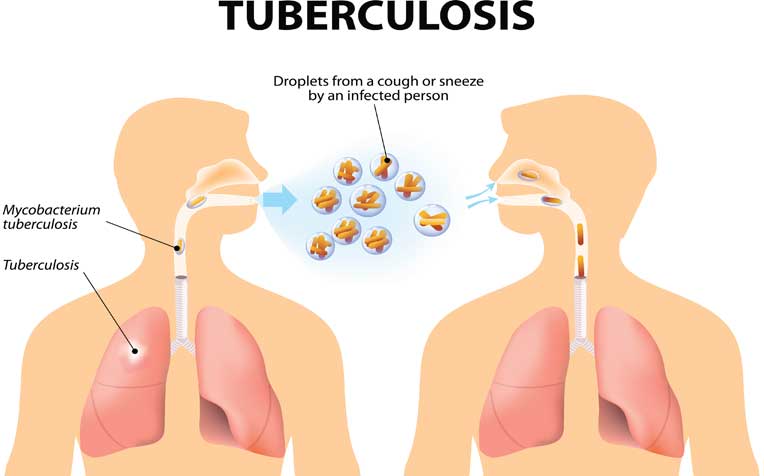
Tuberculosis is commonly spread from one person to another through fine respiratory droplets.
What is tuberculosis and how is it transmitted?
This may come as a surprise, but it’s quite possible that you’ve come across someone infected with the tuberculosis bacteria. After all, according to the World Health Organization (WHO), half of the world’s 22 most affected countries, or “high-burden countries”, are in Asia. Fortunately, only a small proportion of those infected become sick with tuberculosis.
Tuberculosis or TB for short is an infectious airborne disease caused by various strains of mycobacteria, typically Mycobacterium tuberculosis. It is commonly spread from one person to another through fine respiratory droplets. You cannot get TB from the sharing of cups or eating utensils, sharing of cigarettes or saliva contact from kissing.
“TB usually affects the lungs, causing the condition called pulmonary tuberculosis,” says Dr Low Su Ying, Senior Consultant, Department of Respiratory & Critical Care Medicine, Singapore General Hospital (SGH), a member of the SingHealth group. Because #healthiswealth #healthforgood
“However, TB can also affect other parts of the body including the brain, lymph nodes, kidneys, bones and joints. Such a form of TB is called extrapulmonary tuberculosis. If not treated properly, tuberculosis can be a fatal disease,” she adds.
Click the link to read more about tuberculosis (TB).
What is the difference between latent TB and active TB?
Although your body may harbour the bacteria that cause tuberculosis, your immune system can help prevent you from getting sick. To distinguish between latent TB and active TB:
- Latent TB refers to the condition when you have a TB infection but the bacteria remains inactive in your body and causes no symptoms. Latent TB isn’t contagious but has a chance of becoming active.
- Active TB is when the TB bacteria multiply in your body, causing you to develop the symptoms of tuberculosis. If your lungs get infected with active TB, you can easily spread the disease to others.
What are the symptoms of tuberculosis disease?
The symptoms of active TB include:
- Persistent cough that lasts 3 weeks or longer, sometimes associated with bloody sputum
- Fever
- Chills
- Night sweats
- Loss of appetite
- Unexplained weight loss
What can increase your risk of getting TB?
A weakened immune system can increase your risk of getting tuberculosis as your body is unable to mount an effective defence against it. Causes for low immune resistance include:
- Diabetes
- End-stage kidney disease
- Certain cancers
- Cancer treatment, such as chemotherapy
- Immunosuppressive drugs taken to prevent organ transplant rejection
- HIV/AIDS
Read on for tips on how you can protect yourself from TB.
Other articles you may be interested in:
What Causes a Persistent Cough?
Pneumonia: What You Need to Know
COPD (Chronic Obstructive Pulmonary Disease): Symptoms, Risks, Treatment
Ref: S13Contributed by

















 Get it on Google Play
Get it on Google Play